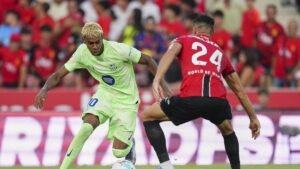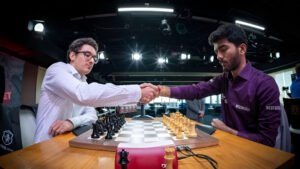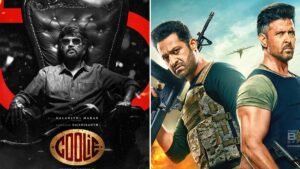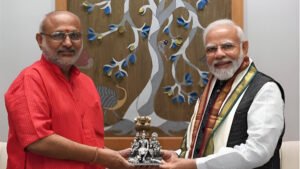Dr. Vece Paes, Olympic Hockey Medalist and Sports Medicine Pioneer, Dies at 80
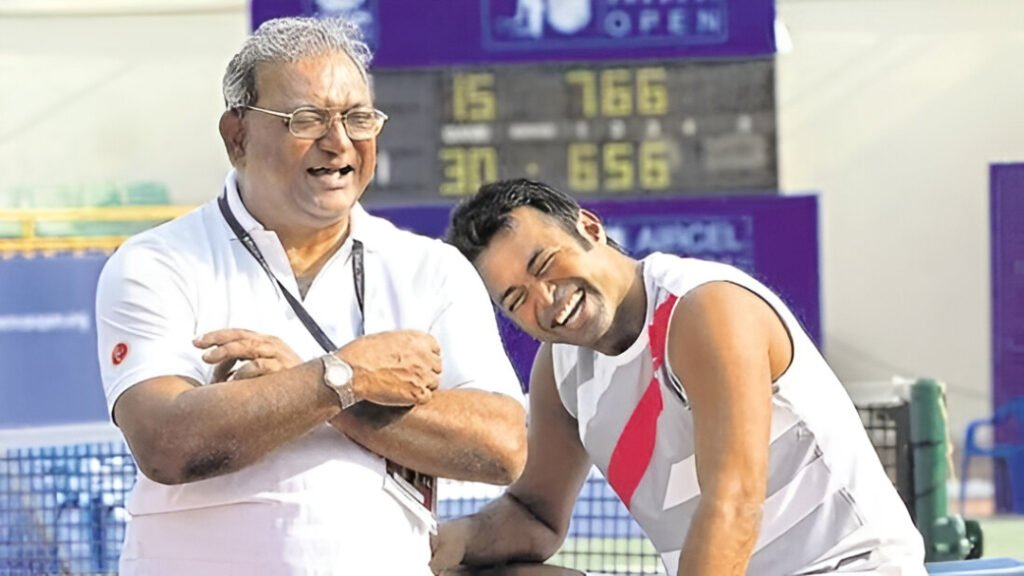
Vece Paes, Olympic bronze medallist in hockey and father of tennis legend Leander Paes, pictured with his son during a sports event.
Kolkata Mourns the Loss of Dr. Vece Paes
The Indian sporting community is mourning the death of Dr. Vece Paes, an Olympic hockey bronze medalist and trailblazer in sports medicine, who passed away on Thursday morning in Kolkata at the age of 80. Paes, the father of Indian tennis legend Leander Paes, had been battling advanced Parkinson’s disease. He was admitted to a city hospital on Tuesday but succumbed to the illness two days later.
Born in Goa in April 1945, Dr. Paes was a man of remarkable versatility—excelling not only in hockey but also in football, cricket, and rugby, while simultaneously carving a distinguished career in sports medicine. His last rites are expected to be performed early next week to allow his daughters living abroad to attend.
Hockey Heroics at the 1972 Munich Olympics
A gifted midfielder, Dr. Paes was a vital part of India’s bronze medal-winning men’s hockey team at the 1972 Munich Olympics. His ability to control the pace of the game and deliver precise passes made him one of the most reliable players on the squad.
That Olympic bronze was India’s last medal in men’s hockey until the 1980 Moscow Games, making the 1972 achievement a significant chapter in the country’s sporting history.
“He was a master of reading the game—a player who could change the tempo in an instant,” recalled one former teammate in a 2012 interview archived by Hockey India.
Beyond Hockey: A Multi-Sport Talent
While hockey brought him international recognition, Dr. Paes’ athletic talent extended far beyond the turf. He represented divisional teams in football, cricket, and rugby, later serving as President of the Indian Rugby Football Union from 1996 to 2002.
His love for sport was matched only by his dedication to improving athlete health and performance—a passion that shaped the second half of his career.
Pioneering Work in Sports Medicine
Dr. Paes earned his medical degree and specialized in sports medicine, an emerging field in India at the time. Over the decades, he became one of the country’s most respected voices in athlete care, working with elite organizations such as the Asian Cricket Council, Board of Control for Cricket in India (BCCI), and the Indian Davis Cup tennis team.
He was also a strong advocate for anti-doping education, conducting workshops and advising sports bodies on maintaining integrity in competition.
According to a 2004 feature in ESPN India, Paes once said, “Sports medicine is not just about healing injuries; it’s about understanding the athlete’s journey and helping them perform at their peak.”
A Family Rooted in Sporting Excellence
Dr. Paes is survived by his son, Leander Paes, one of India’s most decorated tennis players, and his daughters, who reside abroad. His family has requested privacy as they prepare for the funeral, expected to take place on Monday or Tuesday.
Leander, who won an Olympic bronze medal in tennis at Atlanta 1996, has often credited his father’s discipline and passion for sport as a guiding influence in his own career.
Impact and Legacy
The passing of Dr. Vece Paes is not just the loss of a hockey legend but also of a visionary in sports medicine. His dual contribution—as an Olympic athlete and as a medical pioneer—has left an indelible mark on Indian sport.
His life’s work bridged two worlds: the grit of competition and the science of keeping athletes at their best. From the Munich hockey turf to the consultation rooms where he advised champions, Paes’ influence was felt across generations.
As India remembers him, his career serves as a reminder that the country’s sporting success is built not only on goals and medals but also on the people who dedicate themselves to nurturing athletes and protecting the integrity of sport.
References:

